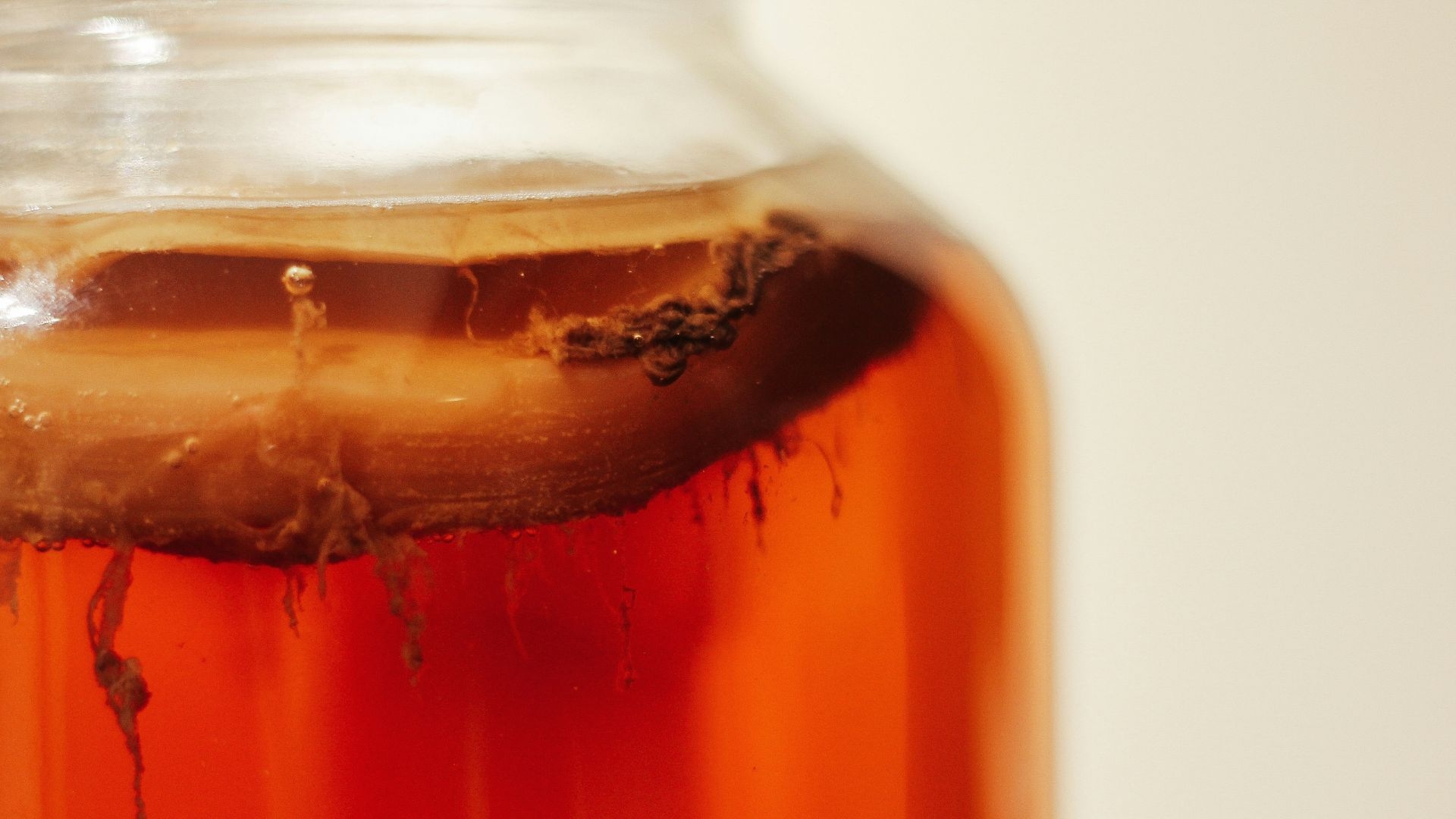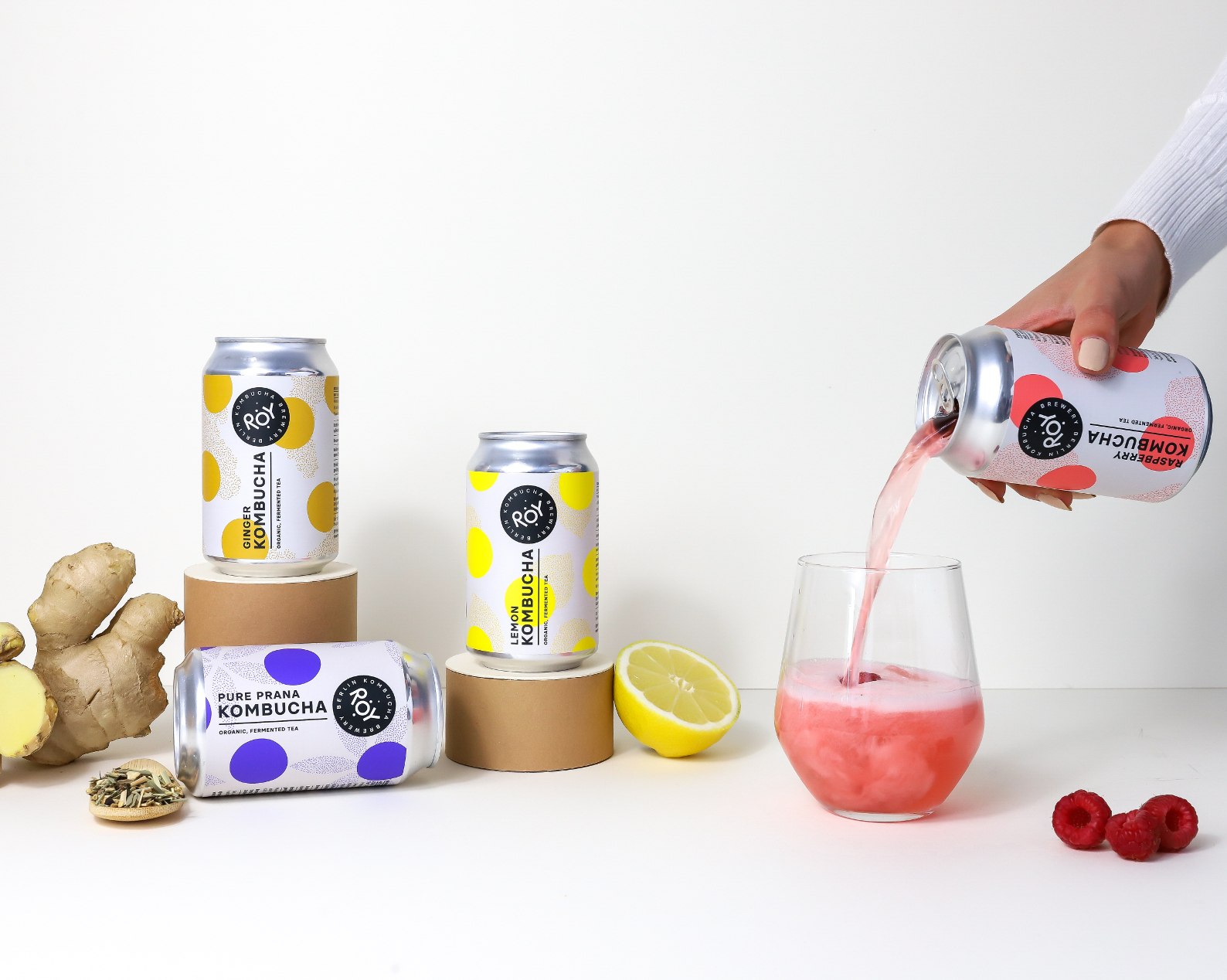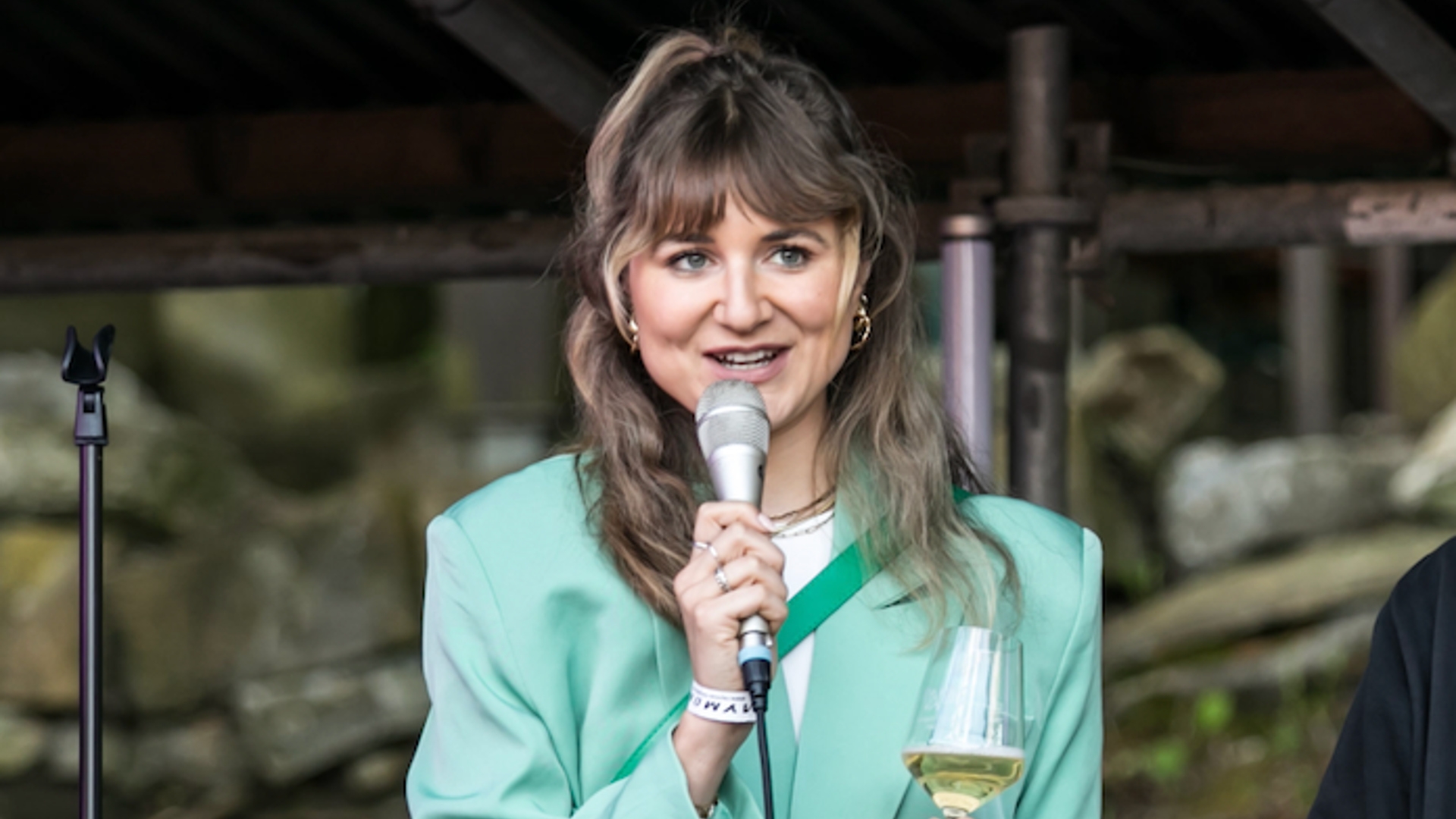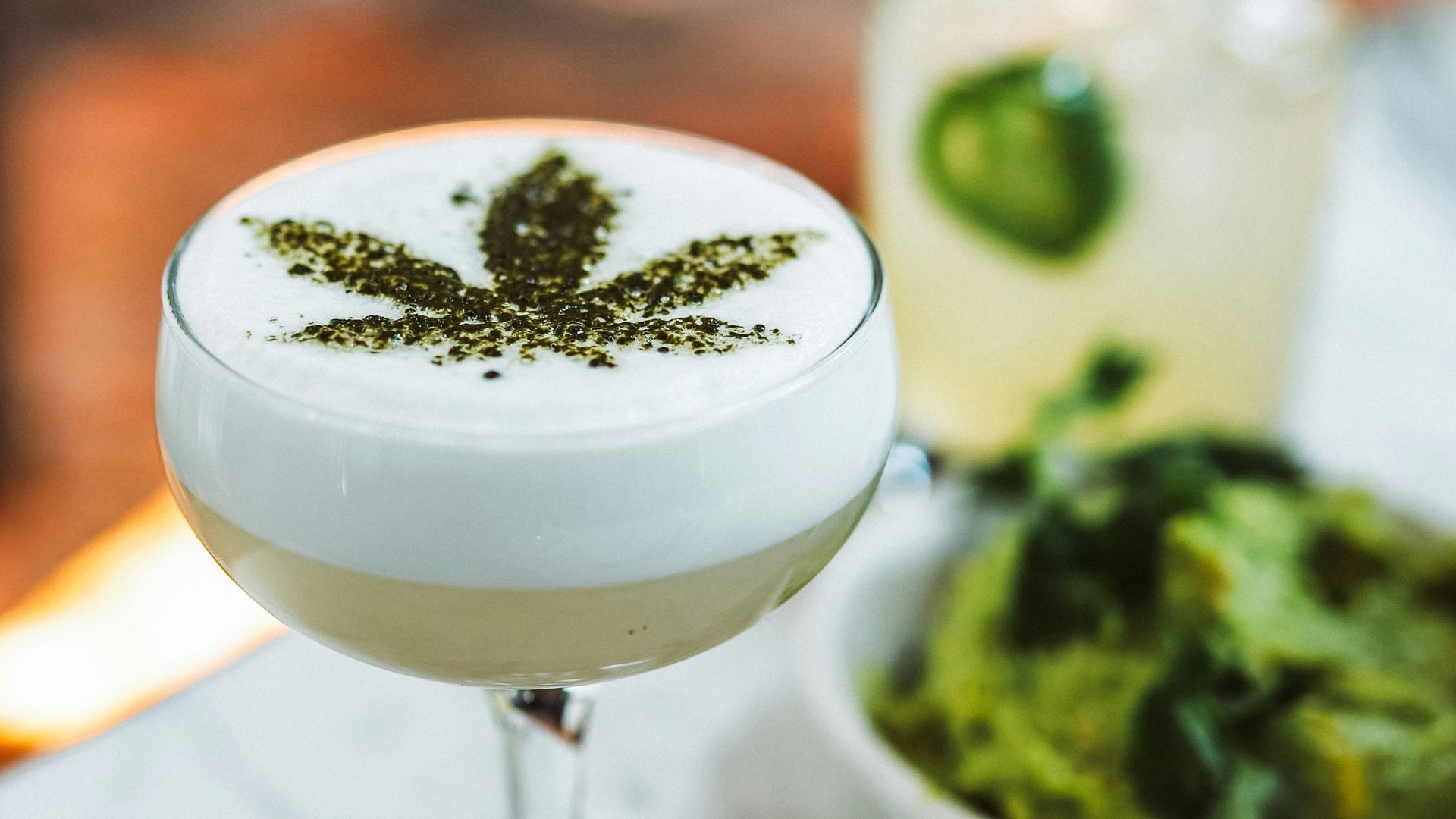A post by
Nina Anika Klotz
freelance author

Kombucha is a drink that is thousands of years old. And for what also feels like thousands of years, the drinks industry has been saying that kombucha will soon have its big breakthrough. Definitely. Is that true? If so, you should be prepared and know what it's all about. So here are the most important facts about kombucha at a glance.
Released on 20/06/2022Updated on 09/07/2024

A post by
Nina Anika Klotz
freelance author

Kombucha products of Ryo Kombucha
Kombucha is a sweet and sour, fizzy drink made from fermented tea. Often green tea, sometimes black tea, in both cases sweetened with sugar. It is usually drunk chilled. There are different origin stories, with some reporting the origin of kombucha in Korea, others telling of the Chinese Quin dynasty, and still other sources cite the fact that in Japanese the word "cha" stands for tea and "kombu" for algae, which would suggest that kombucha originated in Japan. In short: Kombucha originated in East Asia and was in all probability an accidental invention, just like beer – a tea was left to stand and began to ferment.
Kombucha is relatively easy to make yourself: Brew tea strong, add cold water, then sugar. Inoculate the brew with the so-called "tea fungus", the Kombucha culture consisting of bacteria, yeasts and enzymes. The common technical term for the culture is Scoby, short for "Symbiotic Culture of Bacteria and Yeast". In domestic use, the tea fungus from the old Kombucha is always transferred to the new one. However, beginners can also simply buy the culture.
After seven to ten days in the fermentation vessel, the kombucha is filled into bottles to ferment for a further one to two days. It can then be flavoured with ginger, fruit or spices as desired.
The professional production of kombucha follows this principle: "There are no secrets to making kombucha," says Fabio Carlucci, founder and CEO of Roy Kombucha in Berlin, Germany. "There are no special bacteria or processes. You make kombucha the way you make kombucha."
Anyone brewing kombucha at home will always end up with a slightly alcoholic drink with up to 1.5% alcohol by volume. Commercial kombucha brewers want to prevent this because kombucha is generally intended to be a healthier, lower-sugar alternative to soft drinks on the AfG shelf. So they either have to remove the resulting alcohol afterwards, for example by means of sterile filtration. Or they ensure that alcohol is not produced in the first place - through pasteurisation.
The makers of Roy Kombucha in Berlin choose this route - partly because they see it as an opportunity to sell a safe product, even if it is not transported and sold under refrigeration. "The alcohol is the biggest challenge if you want to scale this up," says Carlucci. "There is no final fermentation for kombucha. As a result, the bottles or cans would always have to be kept in the fridge if the bacteria were not killed by pasteurisation."
According to Statista, the value of the global kombucha market was estimated at over two billion US dollars in 2022. A market value of over six billion US dollars is forecast for 2028 (as of 2024).
As is often the case, Europe is years behind the USA. Kombucha has reached the mainstream there – at least on the coasts. In Germany, according to Carlucci, awareness of the kombucha segment is still below five per cent of the population (as of 2022). Nevertheless, he and his co-founders have managed to grow continuously, organically and massively since Roy was founded in 2019: the Berlin-based company now produces 60,000 cans of kombucha per month (as of 2022). They have never run paid advertising campaigns, he reported. Instead, Roy has successfully relied on collaborations, for example with the fast delivery service Gorillas.
While in the past, many kombucha brands primarily focussed their marketing on the supposed, largely scientifically unproven health aspects of the drink (probiotic, good for the intestinal flora, for detoxification or strengthening the immune system), Roy is representative of a new generation of kombuchas that want to sell a cheerful, often crafty lifestyle drink.

Sober Lifestyle
A post by Nina Anika Klotz

Entrepreneurship
A post by Lucia Baier

Quality without pasteurisation
A post by Dr. Christian Dekant

Cannabidiol
A post by Nina Anika Klotz